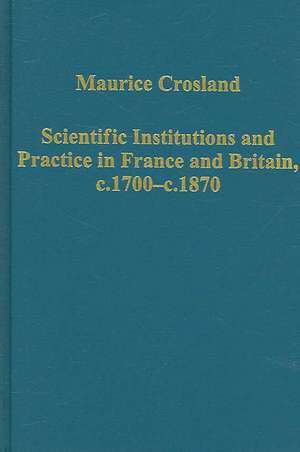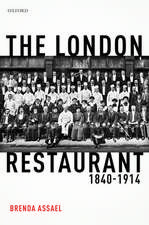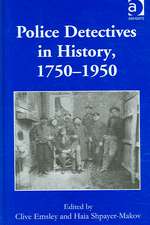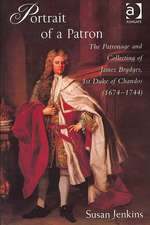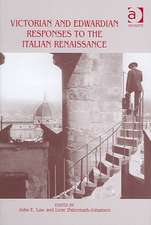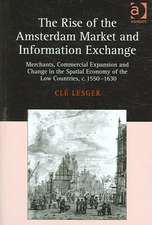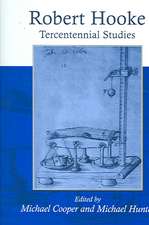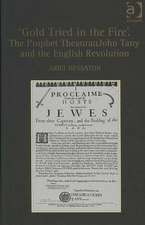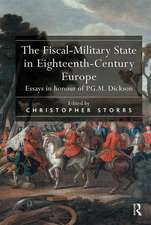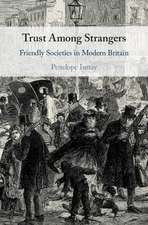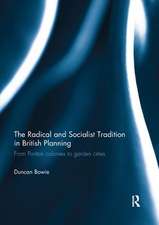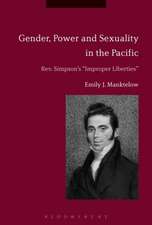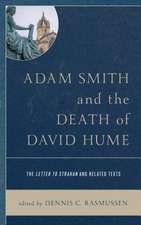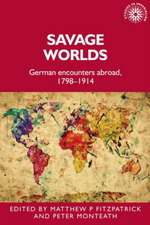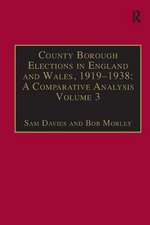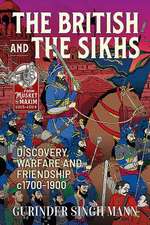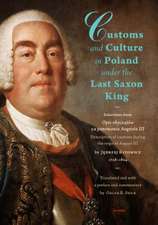Scientific Institutions and Practice in France and Britain, c.1700–c.1870: Variorum Collected Studies
Autor Maurice Croslanden Limba Engleză Hardback – 28 mar 2007
Din seria Variorum Collected Studies
- 9%
 Preț: 938.85 lei
Preț: 938.85 lei -
 Preț: 311.41 lei
Preț: 311.41 lei -
 Preț: 351.48 lei
Preț: 351.48 lei -
 Preț: 313.38 lei
Preț: 313.38 lei -
 Preț: 386.77 lei
Preț: 386.77 lei -
 Preț: 325.68 lei
Preț: 325.68 lei -
 Preț: 396.00 lei
Preț: 396.00 lei -
 Preț: 312.75 lei
Preț: 312.75 lei - 9%
 Preț: 1041.23 lei
Preț: 1041.23 lei -
 Preț: 258.66 lei
Preț: 258.66 lei -
 Preț: 299.55 lei
Preț: 299.55 lei - 9%
 Preț: 938.08 lei
Preț: 938.08 lei -
 Preț: 343.33 lei
Preț: 343.33 lei -
 Preț: 311.18 lei
Preț: 311.18 lei - 9%
 Preț: 937.13 lei
Preț: 937.13 lei -
 Preț: 351.41 lei
Preț: 351.41 lei -
 Preț: 320.00 lei
Preț: 320.00 lei - 34%
 Preț: 764.20 lei
Preț: 764.20 lei - 23%
 Preț: 315.48 lei
Preț: 315.48 lei - 36%
 Preț: 740.06 lei
Preț: 740.06 lei - 34%
 Preț: 764.20 lei
Preț: 764.20 lei - 34%
 Preț: 680.73 lei
Preț: 680.73 lei - 26%
 Preț: 247.40 lei
Preț: 247.40 lei - 34%
 Preț: 485.78 lei
Preț: 485.78 lei - 38%
 Preț: 766.91 lei
Preț: 766.91 lei - 34%
 Preț: 767.07 lei
Preț: 767.07 lei - 34%
 Preț: 764.20 lei
Preț: 764.20 lei - 34%
 Preț: 769.51 lei
Preț: 769.51 lei - 38%
 Preț: 769.85 lei
Preț: 769.85 lei - 34%
 Preț: 826.68 lei
Preț: 826.68 lei - 25%
 Preț: 225.28 lei
Preț: 225.28 lei - 25%
 Preț: 225.54 lei
Preț: 225.54 lei - 34%
 Preț: 736.38 lei
Preț: 736.38 lei - 34%
 Preț: 738.43 lei
Preț: 738.43 lei - 25%
 Preț: 226.52 lei
Preț: 226.52 lei - 33%
 Preț: 491.66 lei
Preț: 491.66 lei - 34%
 Preț: 485.78 lei
Preț: 485.78 lei - 34%
 Preț: 485.78 lei
Preț: 485.78 lei - 36%
 Preț: 739.17 lei
Preț: 739.17 lei - 38%
 Preț: 766.34 lei
Preț: 766.34 lei - 31%
 Preț: 473.94 lei
Preț: 473.94 lei - 18%
 Preț: 843.61 lei
Preț: 843.61 lei - 38%
 Preț: 774.91 lei
Preț: 774.91 lei - 38%
 Preț: 769.92 lei
Preț: 769.92 lei - 34%
 Preț: 764.20 lei
Preț: 764.20 lei - 51%
 Preț: 485.78 lei
Preț: 485.78 lei - 36%
 Preț: 488.49 lei
Preț: 488.49 lei - 34%
 Preț: 769.10 lei
Preț: 769.10 lei - 38%
 Preț: 766.99 lei
Preț: 766.99 lei - 18%
 Preț: 1019.01 lei
Preț: 1019.01 lei
Preț: 765.84 lei
Preț vechi: 1155.54 lei
-34% Nou
Puncte Express: 1149
Preț estimativ în valută:
146.54€ • 153.41$ • 121.25£
146.54€ • 153.41$ • 121.25£
Carte tipărită la comandă
Livrare economică 05-19 aprilie
Preluare comenzi: 021 569.72.76
Specificații
ISBN-13: 9780754659136
ISBN-10: 0754659135
Pagini: 288
Dimensiuni: 150 x 224 x 19 mm
Greutate: 0.54 kg
Ediția:1
Editura: Taylor & Francis
Colecția Routledge
Seria Variorum Collected Studies
Locul publicării:Oxford, United Kingdom
ISBN-10: 0754659135
Pagini: 288
Dimensiuni: 150 x 224 x 19 mm
Greutate: 0.54 kg
Ediția:1
Editura: Taylor & Francis
Colecția Routledge
Seria Variorum Collected Studies
Locul publicării:Oxford, United Kingdom
Cuprins
Contents: Preface; Supplementary bibliography. Part I Institutions: Relationships between the Royal Society and the Académie des Sciences in the late 18th century; The Copley Medal: the establishment of a reward system in the Royal Society, 1731-1839; The officiers de santé of the French Revolution: a case study in the changing language of medicine; Lavoisier, the 2 French Revolutions and the 'imperial despotism of oxygen'; A science empire in Napoleonic France;The organisation of chemistry in 19th-century France; Popular science and the arts: challenges to cultural authority in France under the Second Empire. Part II Practice: Early laboratories c.1600-c.1800 and the location of experimental science;'Slippery substances': some practical and conceptual problems in the understanding of gases in the pre-Lavoisier era; Chemistry: 18th century; Research schools of chemistry from Lavoisier to Wurtz; Difficult beginnings in experimental science at Oxford: the Gothic chemistry laboratory; Index.
Notă biografică
Maurice Crosland is Emeritus Professor in the School of History, University of Kent at Canterbury, UK.
Recenzii
’Maurice Crosland is one of the most revered names in the history of eighteenth and early nineteenth-century history of science particularly for his expertise in the history of chemistry.’ H-France Review ’there is much to go at here, including not only finely focused contributions to research but also more general reflective pieces - on eighteenth-century chemistry and the organisation of chemistry in nineteenth-century France, for example - that bear the characteristic stamp of Crosland’s wide reading and measured judgements.’ Ambix
Descriere
This second collection of studies by Maurice Crosland focuses on the differences in the style and organisation of scientific activity in Britain and France in the 18th and early 19th centuries. There is a particular focus on chemistry and the work of Lavoisier and his colleagues and the great mathematician Laplace. This is complemented by a comparative exploration of the practice of early 'physics' and chemistry and their different reliance on laboratories, raising the question of whether chemistry provided a model for other sciences, both through the construction of pioneering laboratories and in establishing early schools of research.
